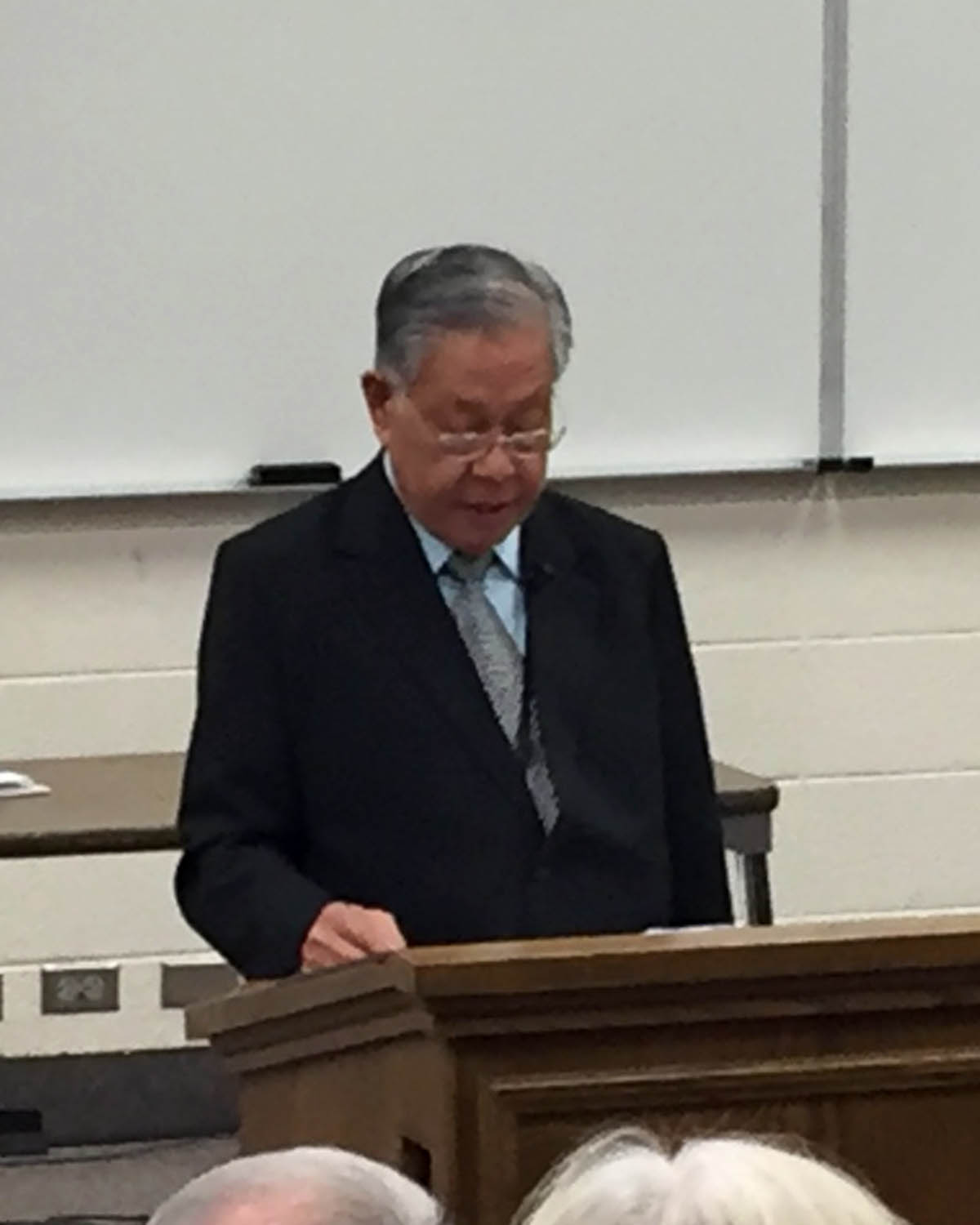Symposium 2015: Judicial Perspectives – Hilario Davide, Jr., Chief Justice (Ret.), Supreme Court of the Philippines

Reported by Lauren Ravsten Robins
In a session moderated by J. Clifford Wallace, Chief Judge Emeritus, U.S. Court of Appeals for the Ninth Circuit, the distinguished Hilario Davide Jr., a Former Permanent Representative of the Philippines and Chief Justice of the Supreme Court of the Philippines spoke on the matter of religious freedom and the interaction of religion and governmental influence in the Philippines.
First, Chief Justice Davide addressed the gender and political issues that have flanked the Philippines government for years, as well as the tension that has existed between the different religious sects of people. The country is 50% Roman Catholic and Christian with a substantial number of Muslims living in Manila. This great divide in religious beliefs has led to much political conflict. He also commented that since the majority of the country is Catholic, same-sex marriage will not be legalized anytime in the foreseeable future. However, he said, while same-sex marriage will not be legalized, there are other legal unions that can be entered into in order to receive the same kind of benefits.
He also spoke on the topic of abortion. In the Filipino government the life of the mother is protected as well as the life of the unborn from the time of conception. When asked about contraception, he stated that even though there is a strong Catholic influence in the Philippines, public funds are used for contraceptives for those who cannot otherwise afford them. He juxtaposed these controversial stances with the government’s hold to religious freedom, and how the government can be seen as progressive yet traditional in this regard.
Chief Justice Davide went on to discuss the history of the Philippines in terms of colonial rule, and the control of other international powers in their governmental system. This history has led to the government now holding that free exercise of religious belief is a fundamental right for the people of the Philippines. The right to religious freedom will eventually lead to peace and justice, he said.